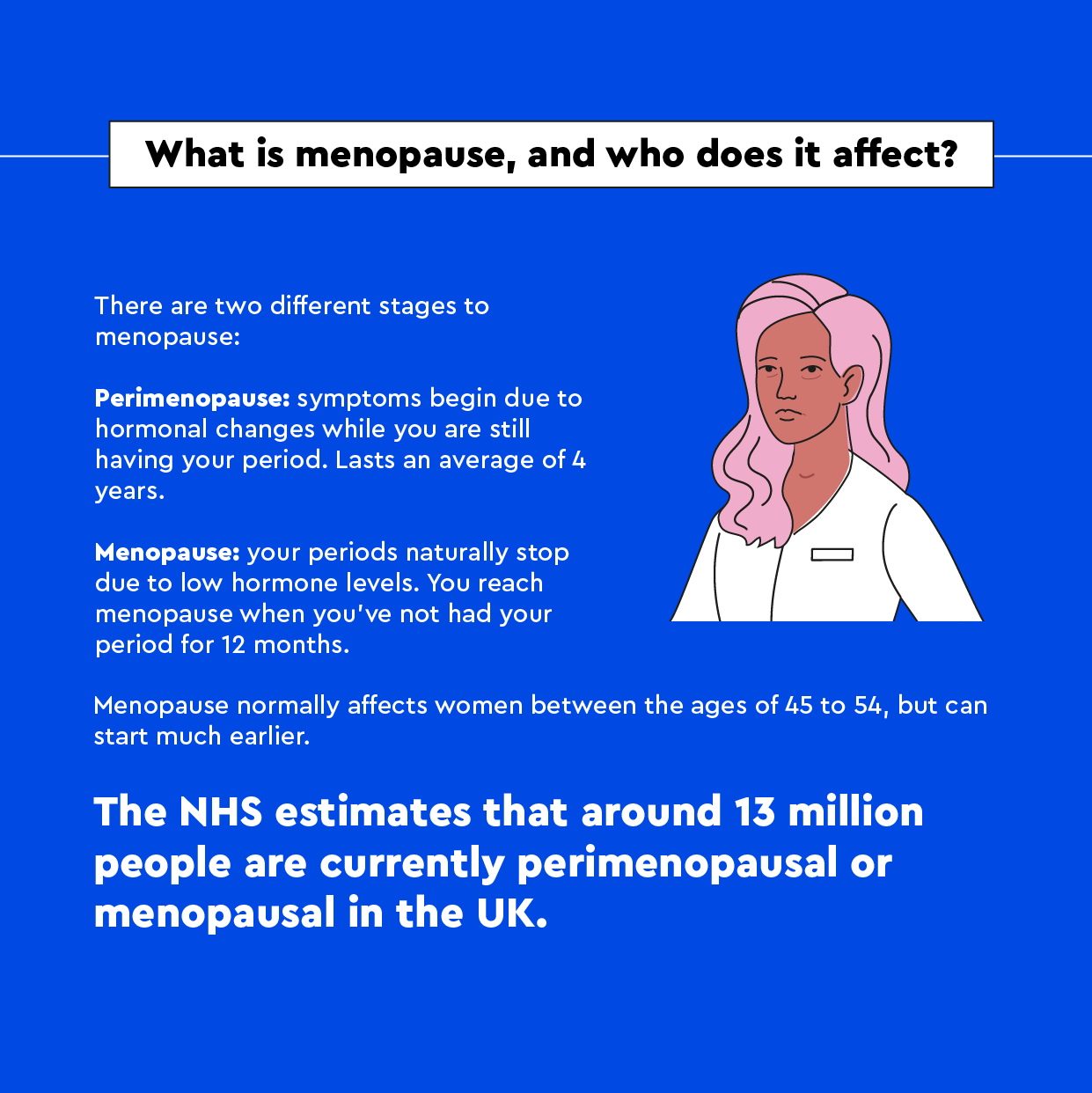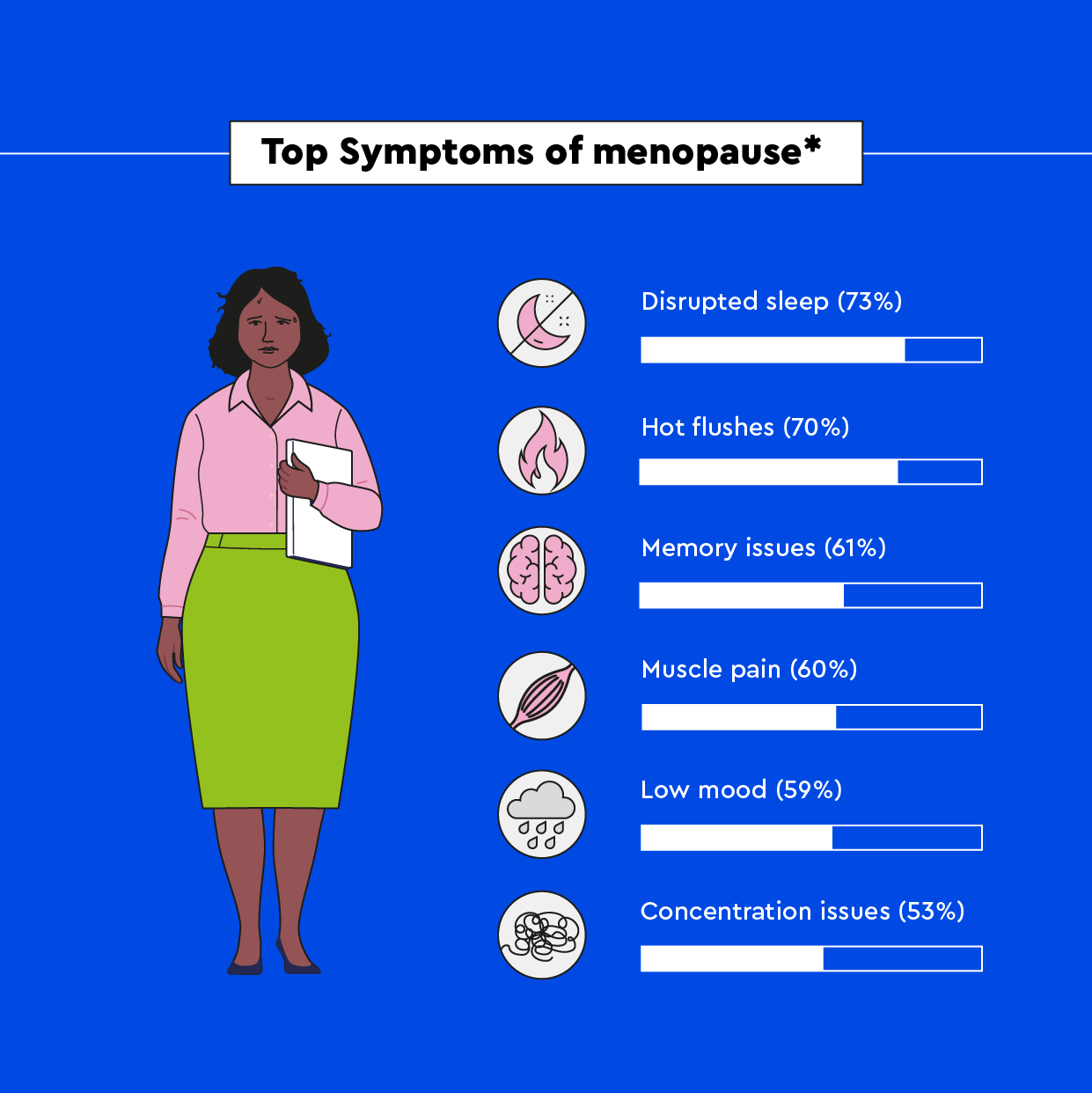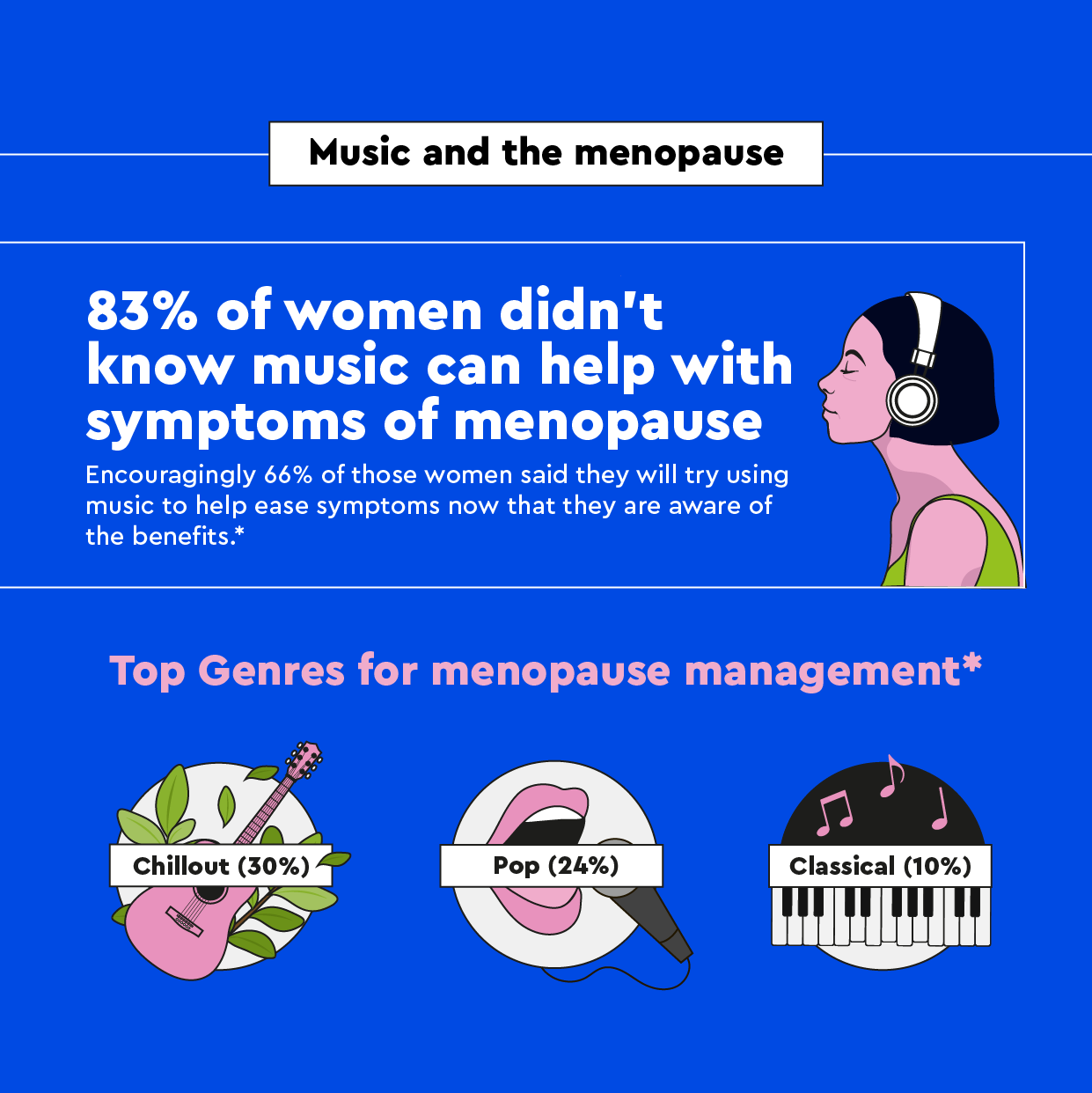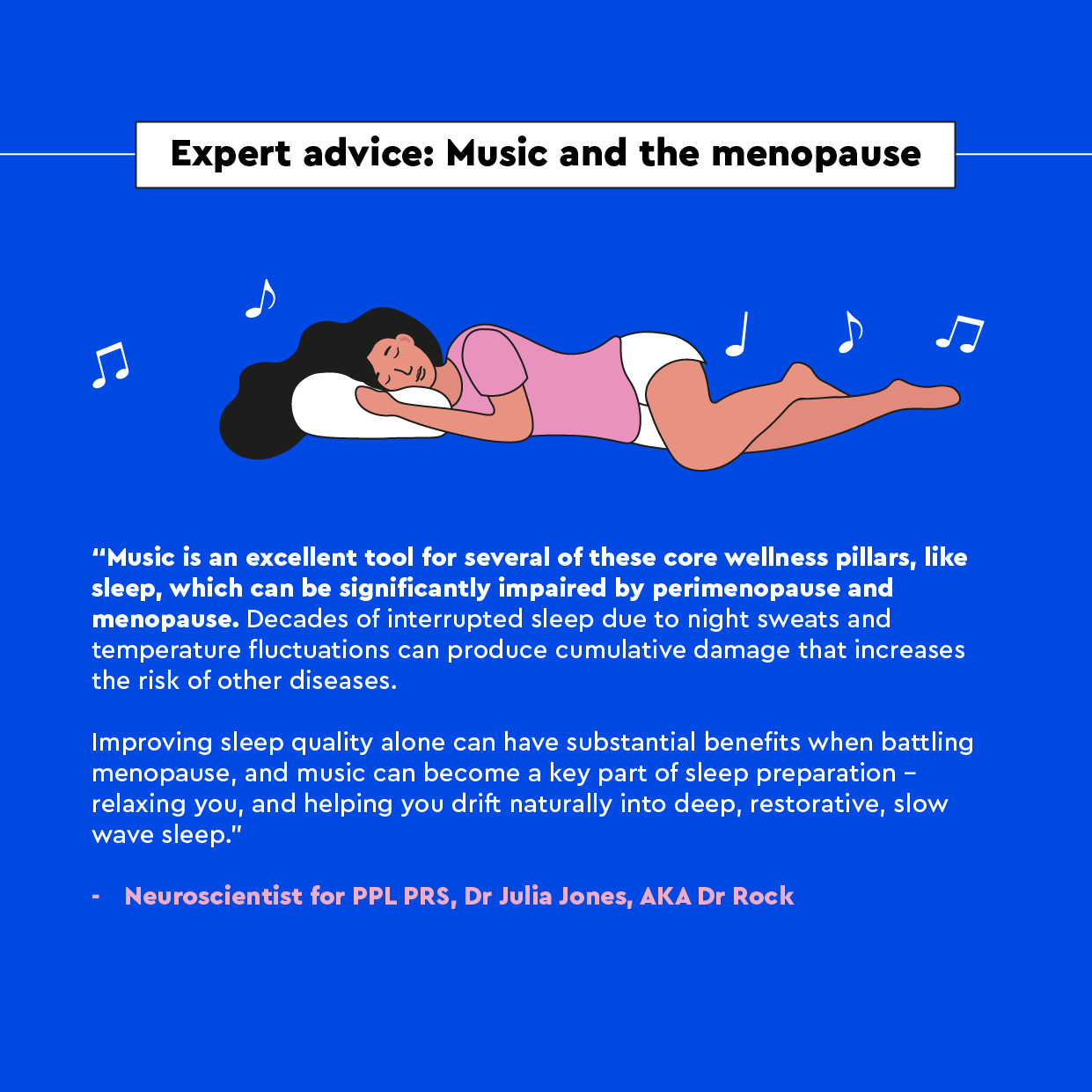A THIRD of working Brits have already experienced burnout just ONE MONTH into 2025, finds PPL PRS survey
Work-related burnout is at ‘crisis point’ as three-quarters (75%) have experienced it in the past
Home » How to taxi along the Menopause Runway
You may not have heard of the term menopause runway before. But think of it like the sleep runway – the things you do leading up to bedtime that have a significant impact on the quality of your sleep.
Similarly, the things you do leading up to perimenopause/menopause will have a significant impact on how you experience it. This has become very apparent to me in my work with private clients and employers over the past two years.
Women in their 40s and 50s are suffering greatly from menopausal symptoms, as outlined in the ‘PPL PRS Guide to Menopause’. This is being exacerbated by the fact that their underlying health needed improving. Think of it in construction terms – if you build a house on weak foundations, that house is more likely to fall down.
Most of us don’t think about menopause until our 40s or 50s but the menopause runway actually begins in your 30s, with a few small bumps in the road which can set you up badly for a turbulent time in menopause.

Changes to our bodies
Our lifestyles may add a pound or so to our weight every year. This particularly happens around Christmas time, and we never successfully lose it. A few pounds lie unnoticed each year, but the cumulative effect of gaining one or two pounds annually from the age of 30, means that by the time you reach perimenopause, you may notice a change to your body shape.
Music licensing company PPL PRS found in a survey that over half of the women who responded (55%) noted weight gain as a symptom when they reach menopause. The way we eat (not just the amount) can also wreck the diversity of our gut bacteria. Weight gain and declining gut diversity can amplify many menopausal symptoms down the line.
Sleep hygiene
Life during our 30s is hectic. We’re juggling working life, home life, relationships, families, social networks etc. The arrival of smartphones has driven bad habits in the evening. Our exposure to artificial blue light from screens means that our Circadian sleep system becomes confused, and this damages our natural sleep quality.
This fact, combined with eating late, drinking alcohol, and too much caffeine, is quietly building a damaging sleep debt throughout your 30s. It’s also a routine of bad habits that won’t help you cope with sleep deprivation in your 40s and 50s – one of the most common symptoms of menopause. PPL PRS found that 73% of women surveyed dealt with troubled sleep as a symptom of menopause.
Stress
We live in a very stressful world. Our ancient, evolutionary biology doesn’t know the difference between a stressful commute and being chased by a lion. Lots of things in our modern existence are frequently triggering that fight-flight-freeze survival response. This results in a chronic drip of stress chemicals that have damaging results in the body and brain over time.
We allow stress to become a “normal” part of everyday life in our 30s. We just cope with it and eventually don’t even notice it. This acceptance of stress can interfere with our ability to stabilise our mood in later life. It also begins to drive brain fog and an inability to focus (also linked to our sleep debt).

Activity
We were born to move, not sit down all day in front of screens. This lifestyle is colossally damaging to our health. It compromises our digestion, our bowel movements, our calorie burn, our bone density, our musculature, and the critical circulation around our brain and body.
Our activity level can dramatically decline during our 30s due to the increasing demands on our time, and full entry into working life. We use the lift instead of stairs, the car instead of our legs, chairs instead of our feet. These habits also negatively impact all the factors I’ve already listed above.
The good news is, there are menopause runway tools!
There are several tools we can use during the menopause runway to help build rock solid foundations for the rest of our life. Many of them are now referred to as “biohacks” because they naturally hack into our underlying biological responses.

Here are a few examples:
Changes to the body and gut diversity
Adopting a simple fasting habit can help build better nutritional habits, control weight, and boost gut health. We’re not meant to be eating all day and night long. Give your digestive system a break by eating breakfast later and eating dinner earlier. For example, trying to eat within an 8-10 hour window during the daytime has been seen to be very effective for many people.
Sleep
Getting early daylight exposure is how your Circadian sleep system regulates itself. Step outside as early in the morning as possible. Use dimmer switches in the evening and avoid screens as much as possible. Music is also a superb and simple biohack, because the ears lead to the brain. Listening to calming music in the lead-up to bedtime helps tell your brain it’s safe to be asleep. A critical piece of information that’s required for your ancient biology to know it can go off-duty.
Stress
Again music is a highly effective biohack, especially when you synchronise your breathing with it. Slowing your breathing helps calm the nervous system, and when combined with music you love, it will also help boost positive mood chemicals in the brain.
Singing is also an excellent stress buster, particularly because of the extended exhales it requires. During exhales, our stress system is switched off. Learning musical instruments can also help lower stress, as well as boosting cognitive reserve and neuroplasticity (building new connections between brain cells). And if you spend a majority of time at work, listening to the radio at work is another way to get the tunes into your routine.

Activity
We now know that gyms are not required for basic wellness. We simply need to stand more often and walk more often, to reap significant benefits (especially when done outdoors in nature). Dancing to our favourite songs also drives brilliant positive effects, both due to the movement but also because of the nostalgia effect relating to the memory of the songs. You can do this alone at home or in an exercise class that plays music.
The way you travel along the menopause runway can put you in the perfect position for take-off into your menopause experience. Think of it as a tuning phase. It’s a period (excuse the menopause pun) when you can embed some really simple, lifelong, habits that will protect you against some menopause symptoms and also a myriad of chronic diseases in later life.
Enjoy your flight.

Dr Julia Jones (AKA ‘Dr Rock’) is PPL PRS’ Smart Wellness Coach. She advocates that music has a powerful positive effect on physical and mental wellness, allowing a person to feel good in body and mind. She raises awareness of the impact of music on health conditions related to the brain development, menopause and more. Her recent focus is the gut-brain axis, working with Channel 4’s Steph McGovern to open a wellness bar called ‘Neuron Wellness’.
After 25 years studying and applying the practices she’s learned from her music neuroscience research (PhD, MSc, MBA, & Bachelor's degree), Dr Rock advises Olympic squads through to business leaders on how listening to music can improve health. She’s a three-time published author ambitious to transform public health and help people live longer, healthier lives through simple, smart wellness habits.
Work-related burnout is at ‘crisis point’ as three-quarters (75%) have experienced it in the past
Workout Music 2025: Create the best playlist for Spinning, Pilates, Yoga, Zumba and more |
Brits have given up on their New Year’s resolutions and are already looking to cancel
Set up a new music licence for your business or organisation.
Get TheMusicLicenceWe use cookies on our website to give you the most relevant experience by remembering your preferences and repeat visits. Cookies are also used for ads personalisation.
By clicking “Accept All”, you consent to the use of ALL the cookies. However, you may visit "Cookie Settings" to provide a controlled consent.
| Cookie | Duration | Description |
|---|---|---|
| __cfruid | session | Cloudflare sets this cookie to identify trusted web traffic. |
| _GRECAPTCHA | 5 months 27 days | This cookie is set by the Google recaptcha service to identify bots to protect the website against malicious spam attacks. |
| AWSALBCORS | 7 days | This cookie is managed by Amazon Web Services and is used for load balancing. |
| cookielawinfo-checkbox-advertisement | 1 year | Set by the GDPR Cookie Consent plugin, this cookie is used to record the user consent for the cookies in the "Advertisement" category. |
| cookielawinfo-checkbox-analytics | 11 months | This cookie is set by GDPR Cookie Consent plugin. The cookie is used to store the user consent for the cookies in the category "Analytics". |
| cookielawinfo-checkbox-functional | 11 months | The cookie is set by GDPR cookie consent to record the user consent for the cookies in the category "Functional". |
| cookielawinfo-checkbox-necessary | 11 months | This cookie is set by GDPR Cookie Consent plugin. The cookies is used to store the user consent for the cookies in the category "Necessary". |
| cookielawinfo-checkbox-others | 11 months | This cookie is set by GDPR Cookie Consent plugin. The cookie is used to store the user consent for the cookies in the category "Other. |
| cookielawinfo-checkbox-performance | 11 months | This cookie is set by GDPR Cookie Consent plugin. The cookie is used to store the user consent for the cookies in the category "Performance". |
| CookieLawInfoConsent | 1 year | Records the default button state of the corresponding category & the status of CCPA. It works only in coordination with the primary cookie. |
| elementor | never | This cookie is used by the website's WordPress theme. It allows the website owner to implement or change the website's content in real-time. |
| viewed_cookie_policy | 11 months | The cookie is set by the GDPR Cookie Consent plugin and is used to store whether or not user has consented to the use of cookies. It does not store any personal data. |
| Cookie | Duration | Description |
|---|---|---|
| __cf_bm | 30 minutes | This cookie, set by Cloudflare, is used to support Cloudflare Bot Management. |
| bcookie | 2 years | LinkedIn sets this cookie from LinkedIn share buttons and ad tags to recognise browser ID. |
| lang | session | This cookie is used to store the language preferences of a user to serve up content in that stored language the next time user visit the website. |
| li_gc | 2 years | This cookie, set by LinkedIn, is used to store consent of guests regarding the use of cookies for non-essential purposes. |
| lidc | 1 day | LinkedIn sets the lidc cookie to facilitate data center selection. |
| lpv{accountid} | 30 minutes | This LPV cookie is set to keep Pardot from tracking multiple page views on a single asset over a 30-minute session. For example, if a visitor reloads a landing page several times over a 30-minute period, this cookie keeps each reload from being tracked as a page view. |
| visitor_id{accountid} | 10 years | This cookie is set for visitors by the Pardot tracking code. The visitor cookie includes a unique visitor ID and the unique visitor identifier for your account. For example, the cookie name visitor_id1245 stores the visitor ID 1010101010. The account identifier, 12345, makes sure that the visitor is tracked on the correct Pardot account. The visitor value is the visitor_id in your Pardot account. |
| visitor_id{accountid}-hash | 10 years | The visitor hash cookie contains the account ID and stores a unique hash. For example, the cookie name visitor_id12345-hash stores the hash “855c3697d9979e78ac404c4ba2c665533”, the account ID is 12345. This cookie is a security measure to make sure that a malicious user can’t fake a visitor from Pardot and access corresponding prospect information. |
| Cookie | Duration | Description |
|---|---|---|
| _ce.cch | session | This cookie, set by CrazyEgg, is used to check if cookies can be added. |
| _ce.s | 1 year | This cookie, set by CrazyEgg, is used to track a recording visitor session unique ID, tracking host and start time. |
| cebs | session | Crazy Egg - Used to track the current user session internally. |
| cebsp | session | Crazy - Egg - Used to determine if a survey should be shown. |
| Cookie | Duration | Description |
|---|---|---|
| __racnt | session | We use Ruler Analytics to measure our marketing activities. This includes tracking page visits and traffic sources we receive. Calls may also be recorded for monitoring and training purposes. For opt-out information please Contact info@ruleranalytics.com or visit https://www.ruleranalytics.com |
| __racplx0 | 30 days | We use Ruler Analytics to measure our marketing activities. This includes tracking page visits and traffic sources we receive. Calls may also be recorded for monitoring and training purposes. For opt-out information please Contact info@ruleranalytics.com or visit https://www.ruleranalytics.com |
| __rafm | session | We use Ruler Analytics to measure our marketing activities. This includes tracking page visits and traffic sources we receive. Calls may also be recorded for monitoring and training purposes. For opt-out information please Contact info@ruleranalytics.com or visit https://www.ruleranalytics.com |
| __rasel0 | 30 days | We use Ruler Analytics to measure our marketing activities. This includes tracking page visits and traffic sources we receive. Calls may also be recorded for monitoring and training purposes. For opt-out information please Contact info@ruleranalytics.com or visit https://www.ruleranalytics.com |
| __rasesh | 2 years 9 months 23 days | We use Ruler Analytics to measure our marketing activities. This includes tracking page visits and traffic sources we receive. Calls may also be recorded for monitoring and training purposes. For opt-out information please Contact info@ruleranalytics.com or visit https://www.ruleranalytics.com |
| __ratel0 | 30 days | We use Ruler Analytics to measure our marketing activities. This includes tracking page visits and traffic sources we receive. Calls may also be recorded for monitoring and training purposes. For opt-out information please Contact info@ruleranalytics.com or visit https://www.ruleranalytics.com |
| _ce.gtld | session | Used by Crazy Egg to identity the top level domain. |
| _ga | 2 years | The _ga cookie, installed by Google Analytics, calculates visitor, session and campaign data and also keeps track of site usage for the site's analytics report. The cookie stores information anonymously and assigns a randomly generated number to recognise unique visitors. |
| _ga_7YJ8ZZ6DPB | 2 years | This cookie is installed by Google Analytics. |
| _gat_UA-99249120-1 | 1 minute | A variation of the _gat cookie set by Google Analytics and Google Tag Manager to allow website owners to track visitor behaviour and measure site performance. The pattern element in the name contains the unique identity number of the account or website it relates to. |
| _gcl_au | 3 months | Provided by Google Tag Manager to experiment advertisement efficiency of websites using their services. |
| _gid | 1 day | Installed by Google Analytics, _gid cookie stores information on how visitors use a website, while also creating an analytics report of the website's performance. Some of the data that are collected include the number of visitors, their source, and the pages they visit anonymously. |
| AnalyticsSyncHistory | 1 month | Used to store information about the time a sync with the lms_analytics cookie took place for users in the Designated Countries. |
| CONSENT | 2 years | YouTube sets this cookie via embedded youtube-videos and registers anonymous statistical data. |
| pardot | past | The pardot cookie is set while the visitor is logged in as a Pardot user. The cookie indicates an active session and is not used for tracking. |
| UserMatchHistory | 1 month | Linkedin - Used to track visitors on multiple websites, in order to present relevant advertisement based on the visitor's preferences. Users can opt out of tracking activity directly on the LinkedIn website. |
| Cookie | Duration | Description |
|---|---|---|
| _fbp | 3 months | This cookie is set by Facebook to display advertisements when either on Facebook or on a digital platform powered by Facebook advertising, after visiting the website. Users can opt out of tracking activity directly on the Facebook website. |
| bscookie | 2 years | This cookie is a browser ID cookie set by Linked share Buttons and ad tags. |
| fr | 3 months | Facebook sets this cookie to show relevant advertisements to users by tracking user behaviour across the web, on sites that have Facebook pixel or Facebook social plugin. Users can opt out of tracking activity directly on the Facebook website. |
| IDE | 1 year 24 days | Google DoubleClick IDE cookies are used to store information about how the user uses the website to present them with relevant ads and according to the user profile. |
| test_cookie | 15 minutes | The test_cookie is set by doubleclick.net and is used to determine if the user's browser supports cookies. |
| VISITOR_INFO1_LIVE | 5 months 27 days | A cookie set by YouTube to measure bandwidth that determines whether the user gets the new or old player interface. |
| YSC | session | YSC cookie is set by Youtube and is used to track the views of embedded videos on Youtube pages. Users can opt out of tracking activity directly on the YouTube website. |
| yt-remote-connected-devices | never | YouTube sets this cookie to store the video preferences of the user using embedded YouTube video. Users can opt out of tracking activity directly on the YouTube website. |
| yt-remote-device-id | never | YouTube sets this cookie to store the video preferences of the user using embedded YouTube video. Users can opt out of tracking activity directly on the YouTube website. |
| yt.innertube::nextId | never | This cookie, set by YouTube, registers a unique ID to store data on what videos from YouTube the user has seen. Users can opt out of tracking activity directly on the YouTube website. |
| yt.innertube::requests | never | This cookie, set by YouTube, registers a unique ID to store data on what videos from YouTube the user has seen. Users can opt out of tracking activity directly on the YouTube website. |

